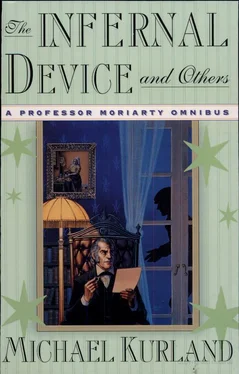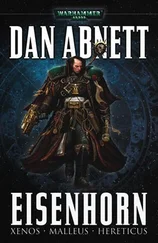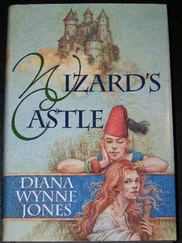"It must be wearing," Moriarty said.
"Nine of the members of my staff are nothing more or less than bodyguards," Gobolski said.
Mr. Maws returned with the brandy glasses on a tray and distributed them, putting the tray with the bottle on a corner of the desk. Gobolski sniffed his drink suspiciously for a second and then drained the glass. "Excellent," he said. Mr. Maws refilled the glass.
"All of this," Gobolski said, "is the normal procedure." He sipped at the second glass. "Then I received a message from St. Petersburg today. Doubly encoded, so that when the code clerk was finished with it I then had to decode it again myself."
"Yes?" Moriarty encouraged.
"There was a message in it — and instructions. The message was for Professor James Moriarty. The instructions were for me. I have never heard of you before, you understand."
"I would not have expected you to have."
"My instructions were to bring the message to you myself, personally, and not allow anyone else to see it. That is unusual."
"I'm sure."
"The instructions further directed me to be careful," Count Gobolski said. "Be careful! When I already have twenty-four-hour policemen and nine armed guards." He smoothed his mustache. "I trust that the message holds some relevancy or importance for you. I confess that it conveys nothing of interest to me."
"I haven't seen it yet," Moriarty said, patiently.
"I tell you Mr. — Professor — Moriarty, there is enough to keep me busy in the diplomatic sphere without branching out into espionage. The External Branch of the Okhrana is responsible for espionage. It is not my job. The relationships between your country and mine — I assume you are British — are quite delicate. They require all of my time. I don't see why a man in my position has to act as a courier for messages of doubtful importance."
"May I see the message?" Moriarty asked.
"What? Oh, yes. Of course." Count Gobolski patted the pockets of his formal attire, and finally produced a slip of buff paper which he passed over to the Professor.
Moriarty read it, and then reread it, looking puzzled. "This is all?" he demanded.
Count Gobolski looked slightly startled at the change in Moriarty's manner. "All?" he said. "Of course it is all. Then I was right— the matter is of no importance? I am missing Wagner for nothing?"
"On the contrary, my dear Count," Moriarty said, "it is of the gravest importance. But it is incomplete; the most significant facts are missing." He held the slip of paper out. "Barnett, what do you make of it?"
Barnett took the paper and stood under the gas pendant to read it. It was printed in a crabbed hand, presumably Count Gobolski's, and read in its entirety:
FOUR SAILORS FROM BLACK SEA FLEET HAVE LEFT SEVASTOPOL FOR ENGLAND. JOINING TREPOFF SURELY. TRAVELING AS GERMANS POSSIBLY. EXPECTED JULY TENTH.
"Trepoff needs sailors," Barnett said, handing the note back.
"So it would seem," Moriarty said. "And the tenth is only six days off." He transferred his attention back to Gobolski. "What do you know of Trepoff?"
"I?" Gobolski started. "Nothing. I know nothing of Trepoff. I have heard rumors, of course. Who has not? But I know nothing of this madman. Nothing. I think it is a joke, or a myth used to scare small children. It is said that he kills without warning. And that, although an agent of the Tsar, even the Tsar is afraid of him. Of course, that is not true. I know nothing of him."
Moriarty leaned forward. "Trepoff is in London," he said, tapping the desk. "He is real. You were sent with that message because of your exalted rank and station, because you could be trusted and no one else could. I thank you for coming. This is of the utmost importance, you must believe that. As important as any of your other work."
"Trepoff is in London?" Count Gobolski shot a nervous glance around the room and wiped his mustache. "Has your man ascertained yet whether my carriage is under observation?"
"He will inform us before you leave," Moriarty said. "But this message must be amplified." He tapped the paper. "You must send a reply requesting more detail."
"Detail?"
"Yes, Your Excellency. I need to know the identity of the four men. I need to know their ranks and their specialties."
"What for?" Gobolski said, honestly puzzled. "They are only sailors. If they were officers it would have said as much."
"But even sailors have specialties," Moriarty said patiently. "They may be deckhands, or gunners, or ordnance specialists, or artificers, or engine crew, or stewards, or any one of a dozen other jobs. If I know what they do, then I will have some idea of why Trepoff wants them. I need this information, Your Excellency."
Count Gobolski nodded. "Very clever. The specialties of sailors. I will send the message."
"Thank you."
There was a tapping at the study door, and Mummer Tolliver burst through. "I've got 'em pegged right enough for you, Professor," he said, coming to a halt in front of the desk.
"Then there is someone watching the house?" Moriarty asked. He looked pleased.
" 'Course there is, sir," the Mummer said. "There's three of 'em, as a matter of fact."
"Tell me about it," Moriarty said, rubbing his hands together thoughtfully.
"Yes, sir. There's a chap bent over in the shrubbery in the square, behind the equestrian statue of Lord Hornblower. He's keeping a weather eye on the carriage what's parked outside the door."
"My carriage?" Count Gobolski demanded.
"Right enough," the Mummer agreed. "And on the back steps of the British Museum, on Montague Place, there's a beggar with a horrible twisted lip selling pencils. Only it's a peculiar time to be selling pencils, says me, and he ain't no beggar, further."
"That sounds like a certain consulting detective of my acquaintance," Moriarty said. "I do hope he isn't too comfortable."
"And then, around the corner of the next block, over on Gower Street, there's a hansom cab setting, waiting for something."
"A fare, perhaps?" Moriarty suggested.
"Funny time to be waiting for a fare on Gower Street," the Mummer said. "I went over to him myself and tried to engage him."
"And?"
"He told me he was otherwise engaged. When I persisted, he told me several interesting things about my parentage that my father hasn't seen fit to mention. He spoke with an accent."
"What sort?" Moriarty asked.
The Mummer shrugged. "French," he said.
"Could it have been Russian?" Moriarty suggested.
" 'Course it could," Tolliver agreed. "French, Russian — they all sound the same, you know."
"Yes, I suppose they do," Moriarty said. "Anything else?"
"It is my opinion," Tolliver said, "that the gent lurking behind the statue and the gent atop of the hansom are working together."
"Interesting," Moriarty said. "On what do you base this observation?"
"Their hats," Tolliver said.
Barnett looked at his small friend. "Hats?" he said.
"Yes. Caps, actually. They both have the same cap, and it's a queer one, it is. Long beak, coming to a point almost, in front. With a little strap in the back with a buckle. Never seen one like it before, and here's two in one evening. That's why I think they're related, those two."
"Very good work, Tolliver," Moriarty said. He turned to Count Gobolski. "If you don't mind my asking, Your Excellency, where are you going from here?"
"To the house of — a friend — south of Kensington Gardens," Gobolski said. "Why do you ask?"
"Please write down the address and give it to Tolliver here," Moriarty said. "They will follow you when you leave here, but they will be prepared for someone attempting to follow them. That is, if it is the group I suspect. However, if Tolliver picks them up when you arrive at your friend's house instead of following them directly, we may catch them off guard. In that case we may be able to trace them back to their lair. Perhaps back to Trepoff himself."
Читать дальше












